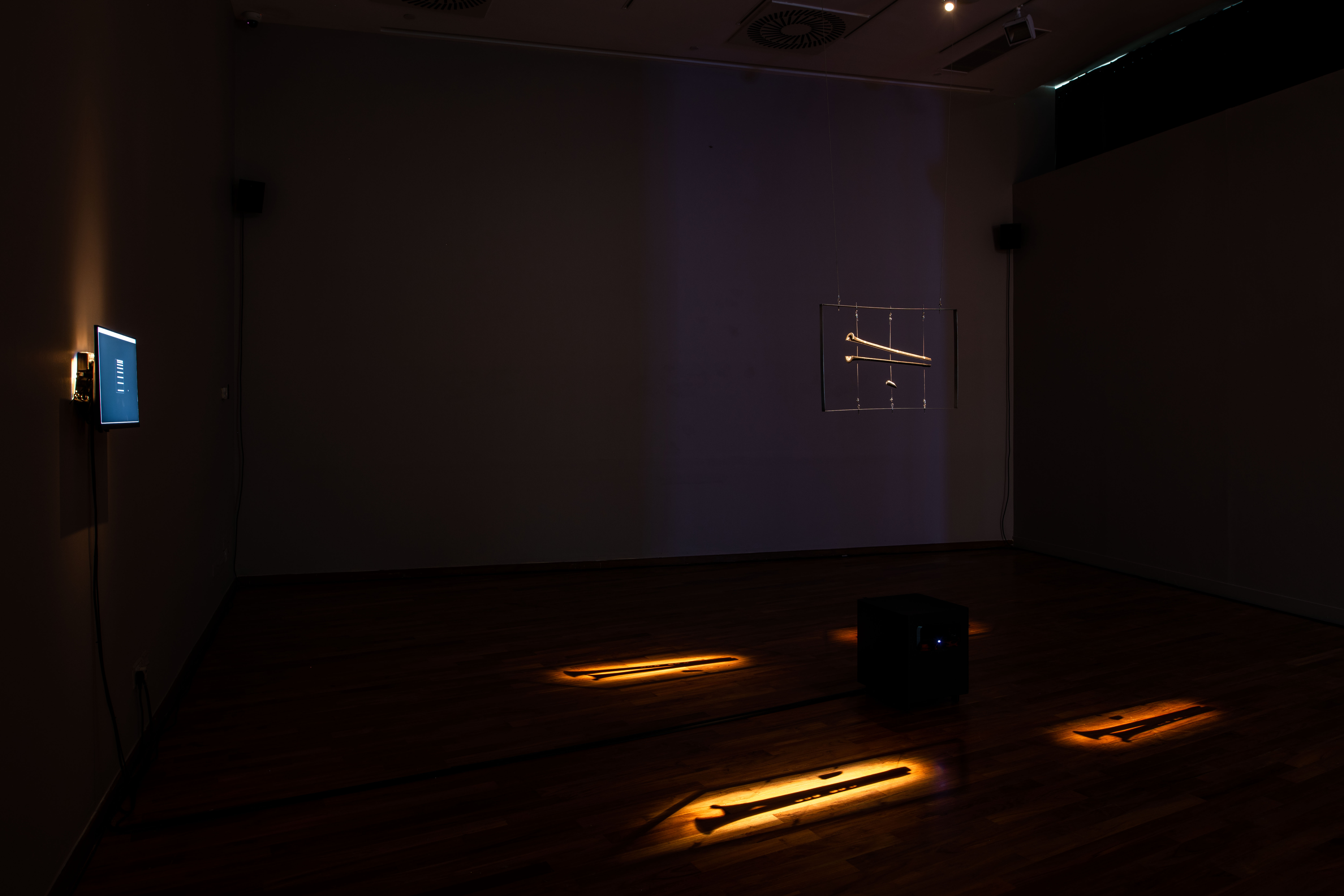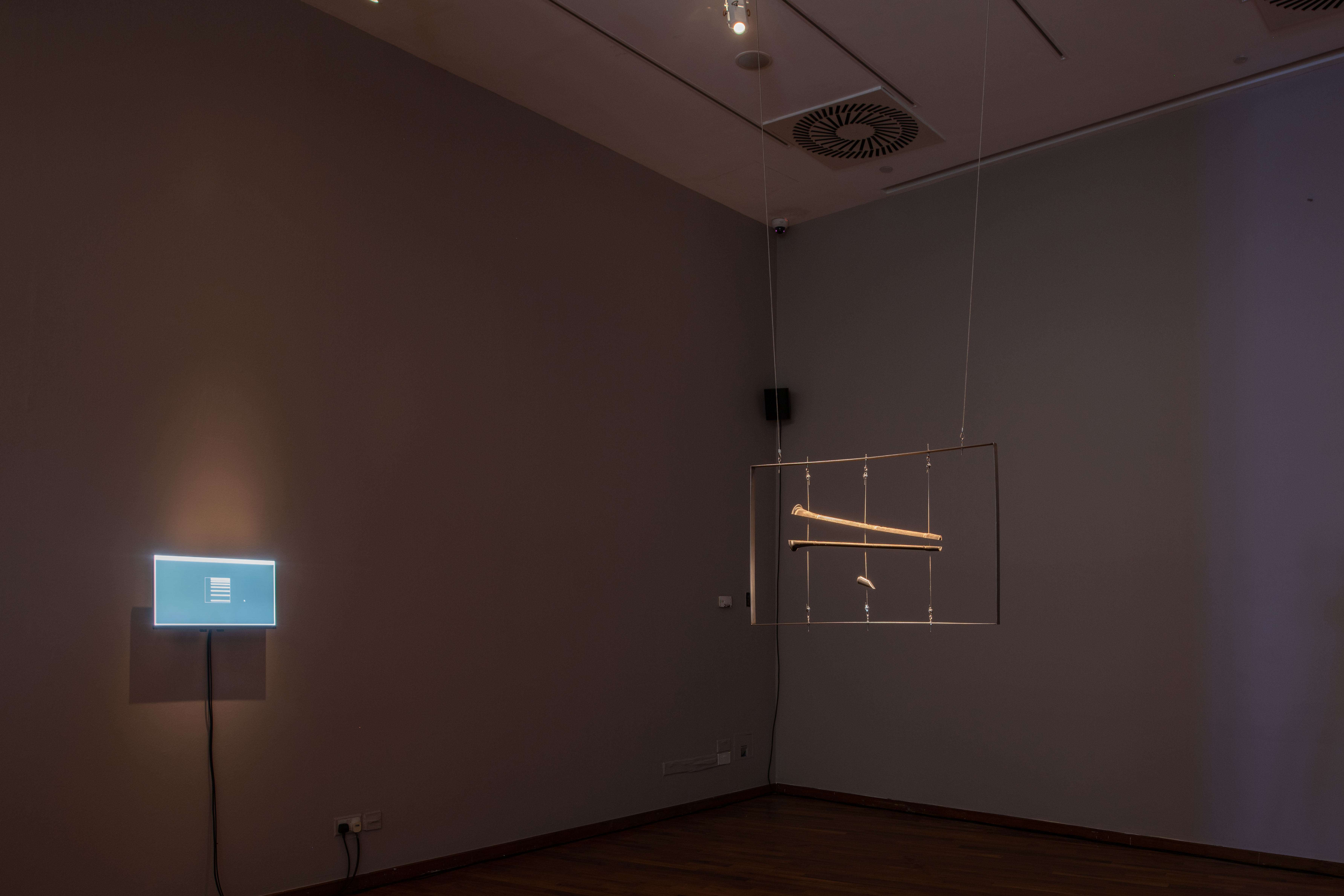bani haykal
“We’re not satisfied
with just making a noise.”
2021
Mixed media installation comprising of a 3D-printed clarine and a multi-channel audio installation
Variable Dimensions

Based on bani’s research into the history and affect of the Cultural Cold War through jazz in Southeast Asia, “We’re not satisfied with just making a noise.” is inspired by a performance on 27 December 1956 in Singapore by Benny Goodman, an American jazz clarinetist and bandleader known as the “King of Swing'' who led racially integrated jazz groups. The title of the artwork is from a response Goodman gave when he was asked why his repertoire did not contain Rock n’ Roll music. Prior to Goodman’s arrival in Singapore, he sent a replica of his clarinet to Runme Shaw as a show of appreciation to the members of the Musician’s Union of Singapore. For bani the clarinet was not only a symbol of friendship but also of the Cultural Cold War, which was in part defined by an anti-communist prerogative of American foreign policy. American policy makers began to appropriate black cultural products like jazz to make the argument that American democracy enabled creativity and to downplay American racism. The US State Department arranged the travel of African American Jazz ‘diplomats’ like Dizzy Gillespie, Louis Armstrong, and Duke Ellington. Such cultural programmes were important for American diplomacy of the 1950s in Southeast Asia, where a wave of independence and solidarity movements were informed by anti-colonialism and anti-racism. Bani identifies the clarinet as an exceptional jazz instrument that becomes an object of disruption. Characterised as the most dynamic and sounding the most human, the clarinet is capable of not only producing loud, piercing tones, but also gentle, mellow, and soothing sounds. Represented through a 3-D printed replica, Goodman’s clarinet is deconstructed and presented in this installation suspended in a grey soundscape that is an abstraction of the old Badminton Hall where Goodman gave his performance. Bani's research into American Jazz diplomacy points to the duplicitous history of jazz being mobilised as an ideological instrument of anti-communism used to bring people into a ‘Free World’ empire of American democracy and capitalism. Thus, his work can be read as a critical homage to the innocuous sounds of empire and the everyday humanity and idealism (associated with both race and music) that were deployed to geopolitical ends.

As an artist, composer and musician, bani considers music (making / processes) as material and his projects investigate modes of interfacing and interaction with feedback/feedforward mechanisms. He is a member of b-quartet. Manifestations of his research culminate into works of various forms encompassing installation, poetry, and performance. In his capacity as a collaborator and a soloist, bani has participated in festivals including MeCA Festival (Japan), Wiener Festwochen (Vienna), Media/Art Kitchen (Indonesia, Malaysia, Philippines and Japan), Liquid Architecture, and Singapore International Festival of Arts (Singapore), among others. His current work frames encryption as a process and basis for human-machine intimacy by navigating interfaces such as a QWERTY keyboard as mediums of interactivity.


